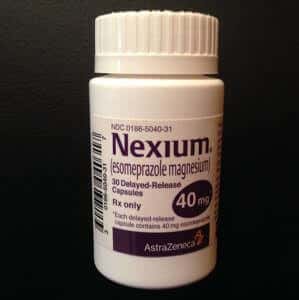
Popular heartburn medications can disrupt bacterial balance in the digestive tract.
Comparing Twins:
A new study of British twins compared stool samples from more than 900 pairs. When one twin took a proton pump inhibitor, the bacteria found in the samples contained much more Streptococcus and Lactococcus strains.
What’s the Impact of Changing Bacterial Balance?
With such changes in bacterial balance, people using powerful acid-suppressing drugs such as esomeprazole (Nexium), lansoprazole (Prevacid) and omeprazole (Prilosec) become more susceptible to C. diff infections. This might explain why such drugs are associated with a higher risk of C. diff, which can cause debilitating and sometimes deadly diarrhea.
Other Side Effects of PPIs:
This alteration of bacterial balance is only the latest adverse effect of proton pump inhibitors (PPIs) to be uncovered. This week, research published in JAMA Internal Medicine (online, Jan. 11, 2016) revealed for the first time that long-term use of a PPI increases the risk of developing chronic kidney disease.
Other worrisome side effects of chronic PPI use include reduced absorption of nutrients such as vitamin B12, calcium or magnesium, an increased risk of fractures, a greater chance of coming down with pneumonia and a higher possibility of heart attacks.
PPIs Don’t Prevent Damage from NSAIDs:
On top of all that, many people take these powerful acid-suppressing drugs together with nonsteroidal anti-inflammatory drugs (NSAIDs) to keep the pain relievers from damaging the intestines. Research shows that PPIs fall short on that objective. You can read more about that here and here.
Avoid Unnecessary Long-Term Use of PPIs:
In summary, people taking proton pump inhibitors should use them for the shortest possible time. That is easier said than done, though. Once a person has taken a drug like esomeprazole for two months, stopping cold turkey can trigger horrible heartburn symptoms, even in someone who never had heartburn before (Gastroenterology, July, 2009). We offer tips on how to minimize the difficulties of stopping a PPI in our Guide to Digestive Disorders.

